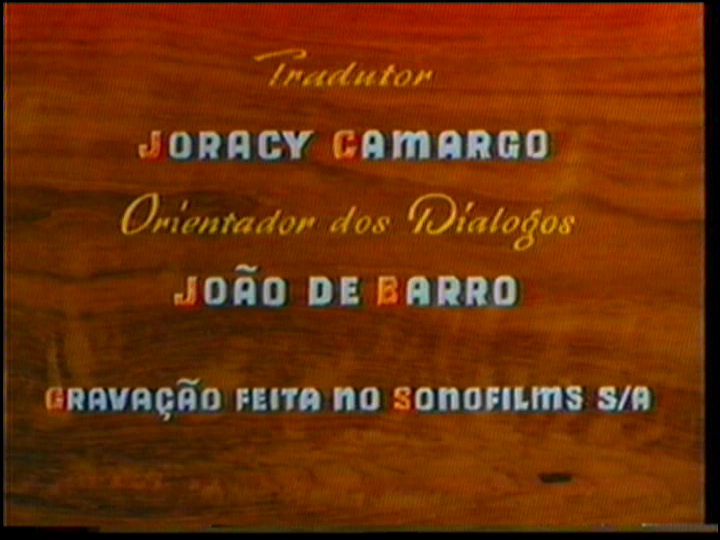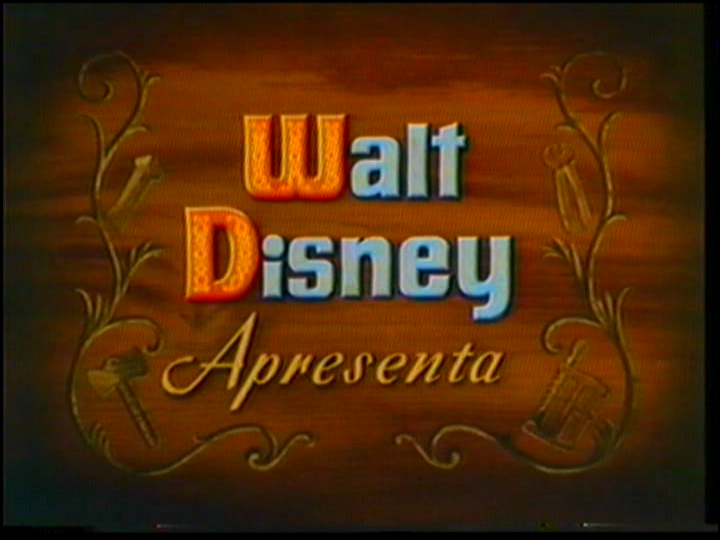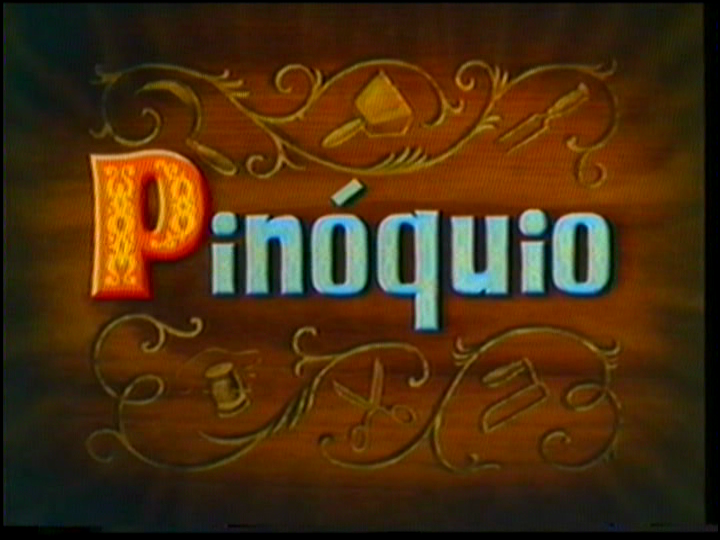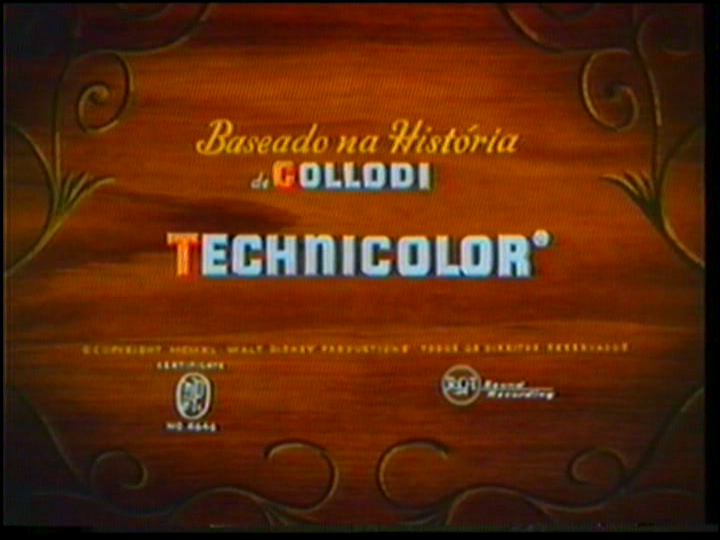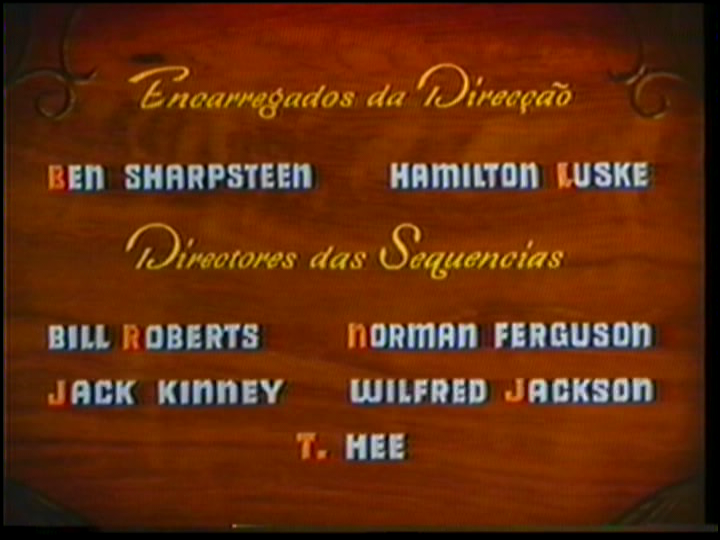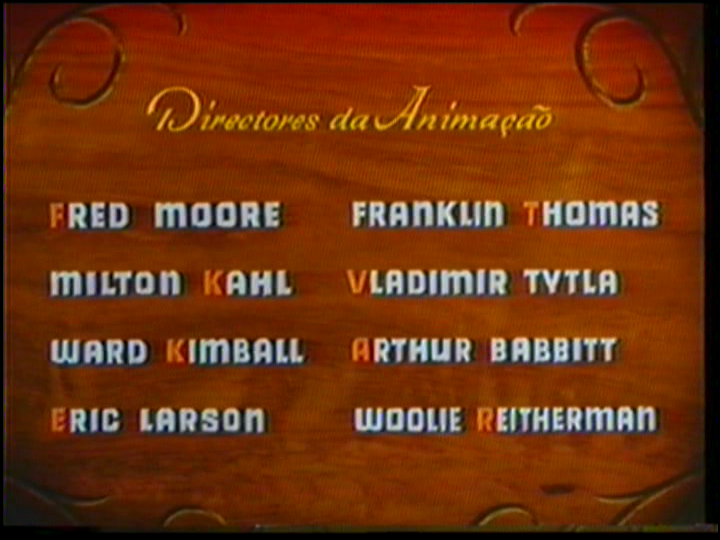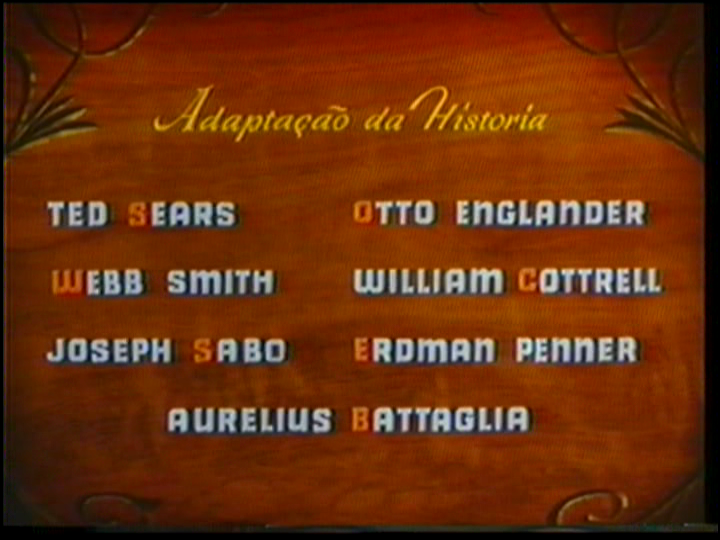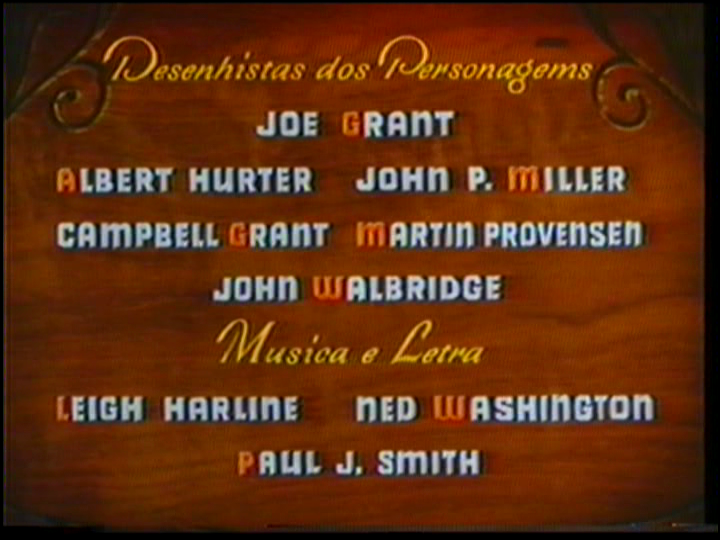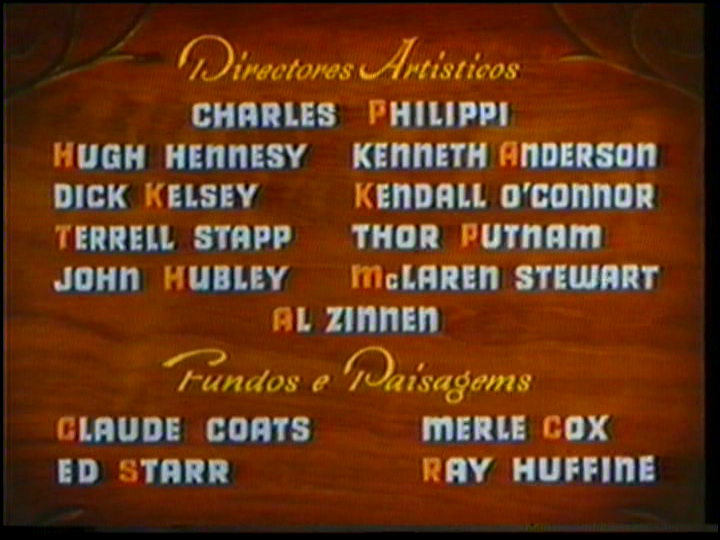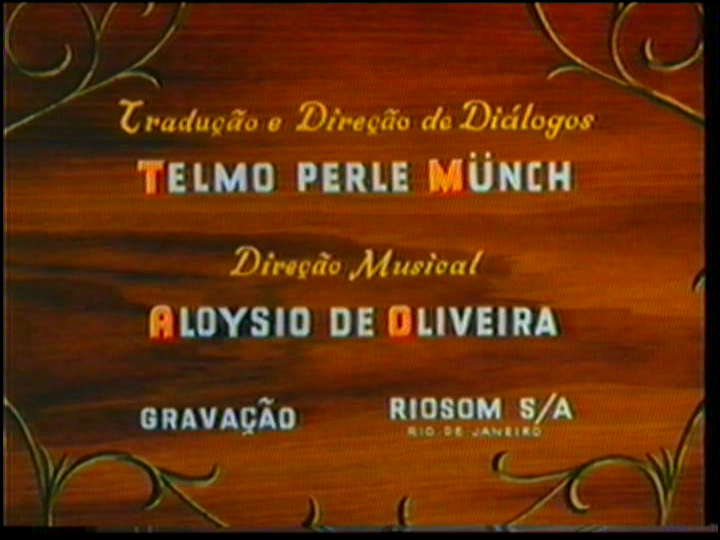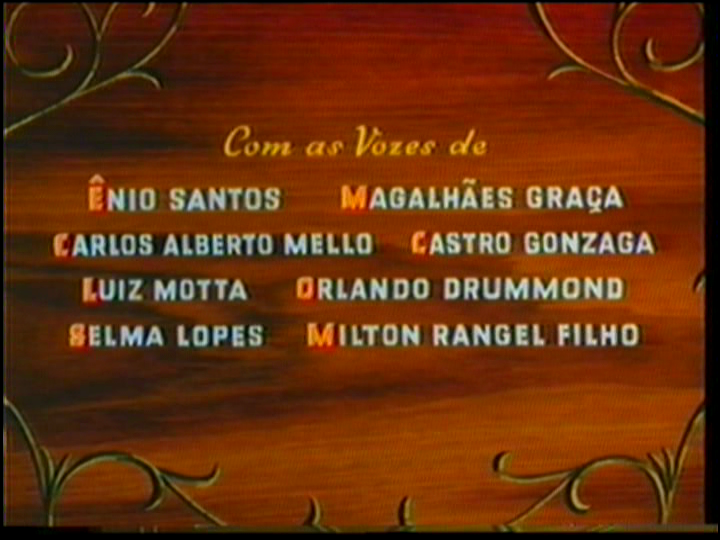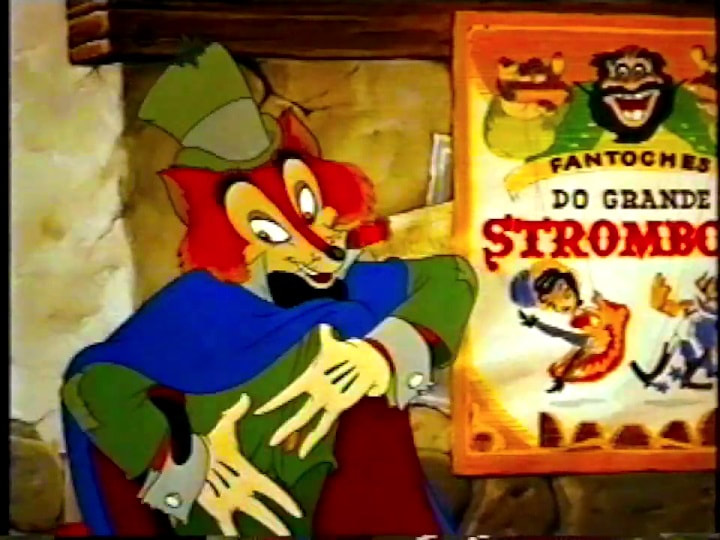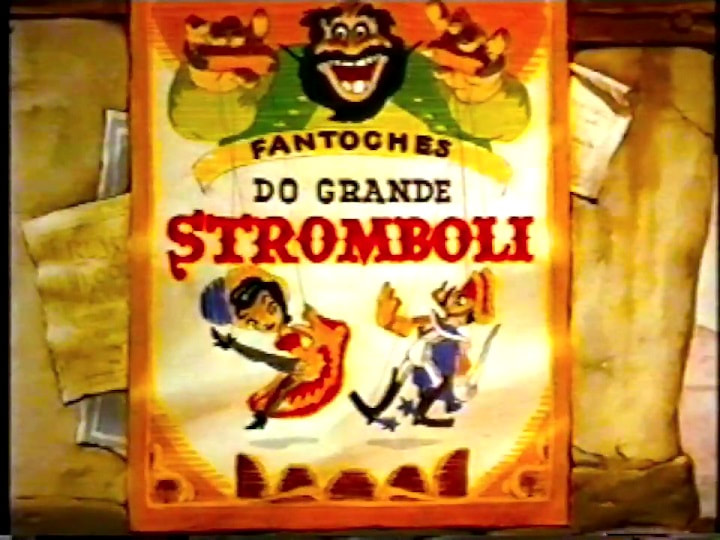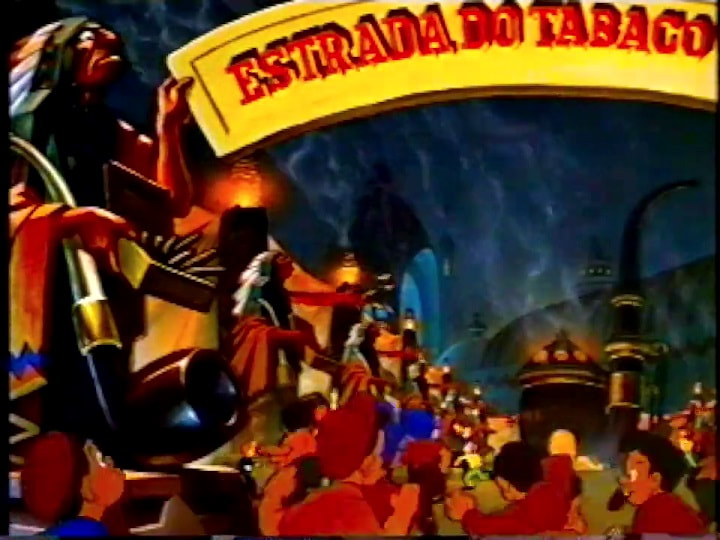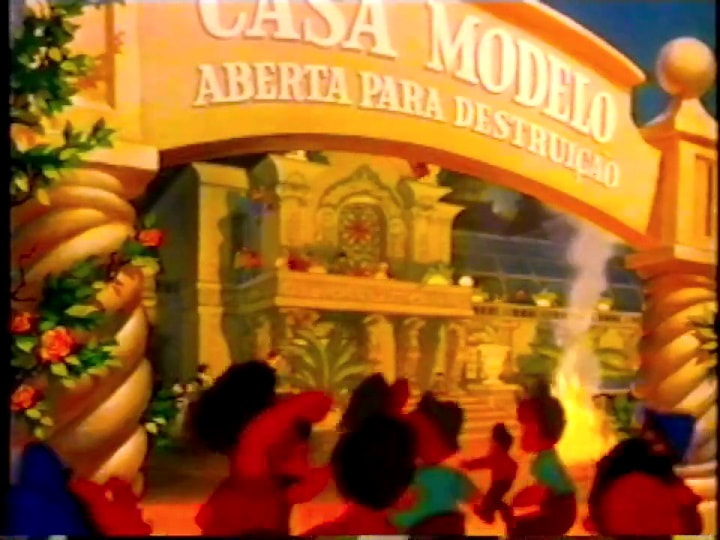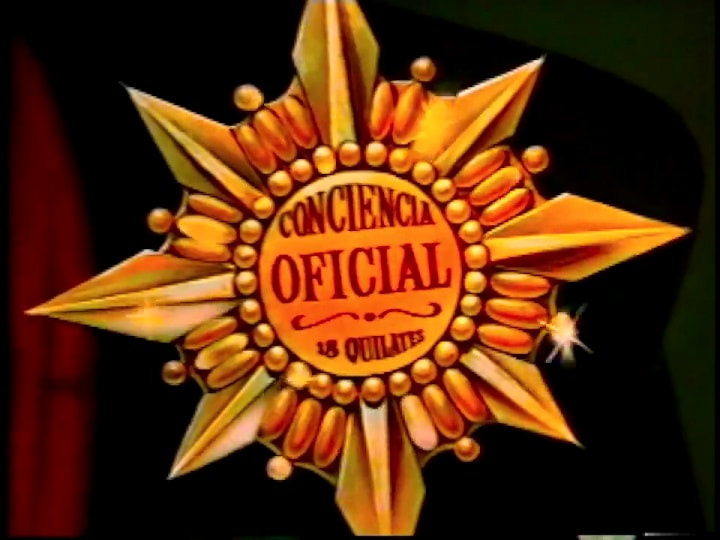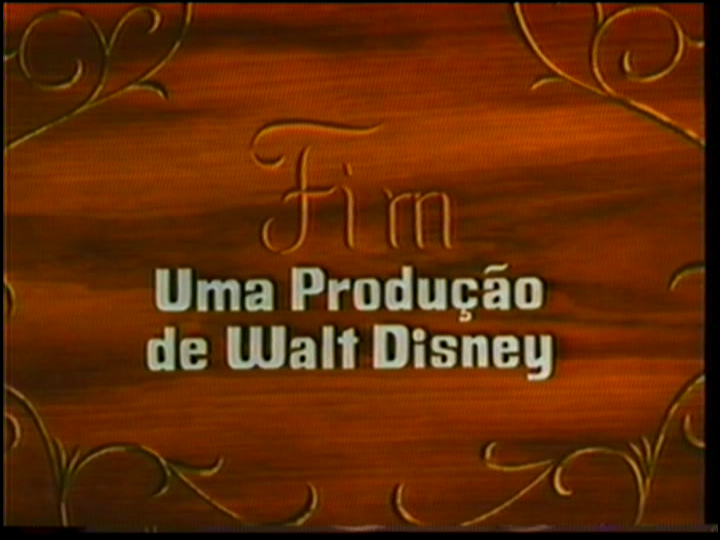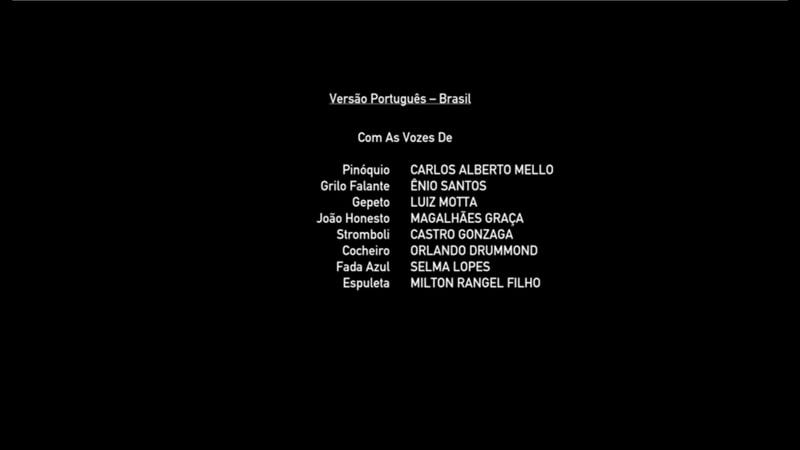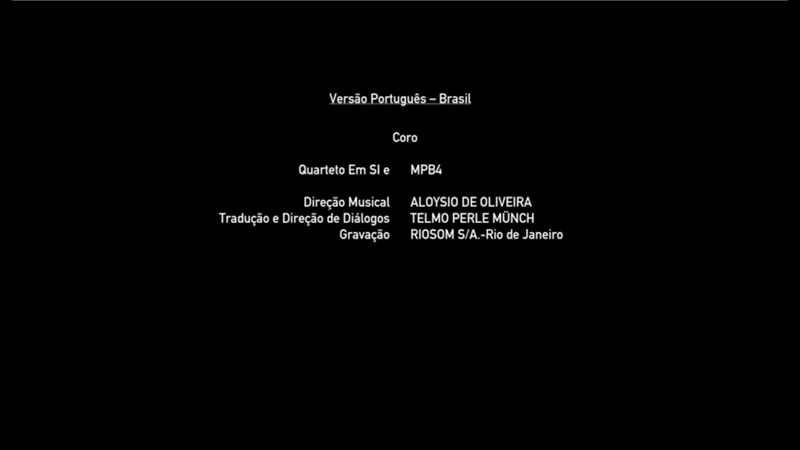Pinóquio
1940 Dub :
Voice Cast :
Character's Name |
Voice Actor |
Pinocchio Pinguinho |
Doraldo Gomes Thompson |
Jiminy Cricket Grilio Falanto |
Olympio "Mesquitinha" Bastos |
- Singing |
Paulo Tapajós |
Geppetto |
Baptista Júnior |
Blue Fairy Fada Azul |
Zezé Fonseca |
Honest John João Honesto |
Henrique Foréis Domingues "Almirante" |
Stromboli |
Lisandro Sergenti |
The Coachman Cocheiro |
Edmundo Maia |
Lampwick Pavio de Vela |
Grande Othelo |
Alexander Alexandre |
Dilmar Thompson |
Marionettes Bonecas Estrangeiras |
Heloisa Helena |
Technical Credits :
Occupation |
Person's Name |
Director Direção |
Carlos Alberto Ferreira Braga "João de Barro" |
Translation Tradução |
Joracy Camargo Carlos Alberto Ferreira Braga "João de Barro" |
Musical Director Direção musical |
? |
Lyricist Tradução de canções |
Zacarias Iaconelli |
Sound Engineer Técnico de som |
Moacyr Fenelon |
Creative Supervisor Supervisão da dublagem |
Wallace Downey Jack Cutting Stuart Buchanan |
Mixing Studio |
? - New York, USA |
Dubbing Studio Estúdio de dublagem |
Sonofilms |
1966 Dub :
Transcription :
Character's Name |
Voice Actor |
Pinocchio Pinóquio |
Carlos Alberto Mello |
- Singing |
Selma Lopes |
Jiminy Cricket Grilo Falante |
Ênio Santos |
Geppetto |
Luiz Motta |
Blue Fairy Fada Azul |
Selma Lopes |
Honest John João Honesto |
Magalhães Graça |
Stromboli |
Castro Gonzaga |
Coachman Cocheiro |
Orlando Drummond |
Lampwick Espuleta |
Milton Rangel Filho |
Alexander Alexandre |
? |
Marionettes Bonecas Estrangeiras |
Quarteto em Cy |
Technical Credits :
Occupation |
Person's Name |
Director Direção |
Telmo Perle Münch |
Translation Tradução |
Telmo Perle Münch |
Musical Director Direção musical |
Aloysio de Oliveira |
Lyricist Tradução de canções |
? |
Chorus Coro |
Quarteto em Cy MPB-4 |
Sound Engineer Técnico de som |
? |
Creative Supervisor Supervisão da dublagem |
Eugene Armstrong |
Dubbing Studio Estúdio de dublagem |
Riosom S/A - Rio de Janeiro |
Sources :
1940 Dub :
Newspaper clippings
1966 Dub :
2001 VHS Release
Disney+
Additional information :
A Memória da Dublagem
1940 Dub :
Newspaper clippings
1966 Dub :
2001 VHS Release
Disney+
Additional information :
A Memória da Dublagem
Trivia :
- Release date : 09/02/1940 (premiere of the first dubbing in Rio de Janeiro and Rio Grande do Sul)
- - Re-release : 07/31/1946
- - Re-release (Portugal) : 12/??/1954
- Premiere of the second dubbing : 12/??/1966 (Portugal), 12/25/1967 (São Paulo & Rio de Janeiro, BR)
- - Re-release : 12/21/1979
- - Re-release : 07/03/1988
- There are two dubbings of this film. The first from 1940 and the second from 1966.
- In the cinema releases, the film used the original English title (Pinocchio.) The home media releases re-titled the film (Pinóquio.)
- There was a contest before the film's premiere in Brazil to win merchandise from the film. If you would like to learn more about this contest, good friend of the website Leonardo Forli has written an article on his website about it. Link
- The 1940 version, along with the Latin Spanish version, were the only foreign language versions of Pinocchio to be released in 1940. This was due to World War II cutting off the European and Asian markets from the USA.
- Joracy Camargo only had a short time to translate the movie. He filled the movie with humor and simple for anyone to understand (both kids and adults.) João de Barro also helped translate the script as well by changing some of the wording by Camargo.
- After the dialogue was completed at Sonofilms, it was sent to an unknown studio in New York for mixing.
- Edmundo Maia was incorrectly credited as Geppetto in a newspaper article. In reality, it was Baptista Júnior that voiced Geppetto. Edmundo Maia did voice the Coachman in the 1940 dub.
- There are excerpts from the first dub are available on vinyl records made during the 1940s. Otherwise, the dubbing is lost.
- The 1966 dub was first shown in Portugal during the Christmas season of 1966. While in Brazil, it was shown in 1967.
- The 1966 dub is the most common dub and is available on all Brazilian home video releases and the first Portugal VHS release.
- On the first VHS release, the 1940 technical credits were included as well as the 1966 technical credits.
- Selma Lopes was uncredited as Pinocchio's singing voice in the second dubbing. She revealed that she did his singing voice here and here.
A special acknowledgement goes to Leonardo Forli for helping and developing this entry ! :)

